Britain is consolidating a new support facility in the Sultanate of Oman, a historic British ally and partner. Alongside HMS Juffair, the Duqm Port facility is set to enhance Britain’s military capabilities in the Middle East and wider Indian Ocean.
Britain and Oman enjoy a longstanding history of a close relationship. The two countries have one of the most robust military relations in the region due to their shared history and interests that date back to the eighteenth century.
Nevertheless, only in the first half of the nineteenth century that those two nations approached each other properly and led the foundations of the contemporary Anglo-Omani relationship. After the defeat of Napoleon in 1815, the British had been consolidating its position as the preeminent world power. The Pax Britannica was at its dawn and Britannia rule the seas. That could not be different for the Indian Ocean and the Jewel of the Crown, India, was at the centre of vast imperial strategy, to keep the sea routes – and the Empire – safe. Oman would receive even more attention from the UK when the Suez Canal was officially opened in 1869.
Political arrangements were made in the region that eventually preserved the independence of the Sultanate of Muscat and Oman, at least in a legal sense. In contrast with the so-called Trucial States or Trucial System, that prevailed in the Persian Gulf, which has given Britain the control of the sultanates’ foreign relations and, thereby, has driven back other great powers’ influence in the region.
But the role of Oman in the British imperial strategy also was linked with the importance of the Sultanate geographical position as the entrance of the Persian Gulf. Located on the south-west corner of the Arabian peninsula, bordered by former British protectorates and, eventually, significant producers of oil. The country’s position alongside the Strait of Hormuz, the only waterway that connects the Gulf with the wider Indian Ocean, was and still is vital to whom holds the naval and political dominance in the region. From the late nineteenth century and as late as the 1960s Britain can be easily regarded as the chief military and political player in the area.
In the 1950s, envisaging oil prospecting in the country’s interior, British personnel aided the enforcement of the Sultan’s authority in those unstable regions. But only in 1967 that Omani oil extraction was initiated, and the oil revenues were bound to be an enormous source of income for the Arabian country. Britain’s economic power over its ally is summoned by the fact that even in the mid-1960s more than half of Oman’s revenue came directly from London.
So, the British influence held enormous leverage over the ruler of Oman. The Sultan’s defence secretary and chief of intelligence were British officers. The Sultan’s armed forces commander was British, which gathered daily with the British defence attaché; to sum up a long list, only one of his government ministers was not British. Ultimately, the Sultan held formal foreign relations only with Britain. With this in mind, it should not be a surprise to meet affirmations such as that ‘the Sultanate of Muscat and Oman was a de facto British colony’.
The British military role during the 1950s and 1960s was mainly to keep the Sultan in power, despite the unpopularity of the later amongst the people of Oman. The British forces were necessary to maintain the government’s stability, especially in the 1950s during uprisings in the north of the country. The Special Air Service (SAS) and the Royal Air Force (RAF) played a relevant role in the so-called counter-insurgency operations in the mountainous terrain of the country’s interior.
After the troubles of the 1950s, with British training and funds, the Omani armed forces were reformed, opening doors for more Omanis to be recruited into the ranks. However, officers ranks were reserved for the British; including the ‘contract officers’ or mercenaries that once served with the British Army in Oman.
By the end of the 1960s, the rebels nationalists in Dhofar were developing into a revolutionary movement with aid from the Soviet Union and China. In 1969, the capital of Oman, Muscat, and its oil fields were displaying signs of vulnerability towards the rebels. The fear of the fall of the Sultanate under communist control prompted a harsh British response, which was kept in total secrecy.
Eventually, in the summer of 1970, a coup was planned, and the Sultan Said bin Taimur was deposed by his son, Qaboos bin Said; this palace plot had been backed mainly by the MI6 and the Ministry of Defence. With the new Sultan, the British position in fighting the rebels was enhanced, and by 1976 the war was won by Britain and her allies. The British aid against the revolutionaries would ensure the continuity of London’s influence in the country, even after its military withdrawal from Oman.
The quarrel in Oman with the revolutionaries of Dhofar is regarded as one of the most significant conflicts of the Cold War; the outcome would define the controller off the Strait of Hormuz and the incessant flow of oil. Nevertheless, details of the war in Oman remains amongst the especially guarded secrets of the UK.
Following the successful outcome of the Dhofar conflict, Britain would hand over to the Sultanate of Oman the key RAF bases at Masirah Island and Salalah, first established in the inter-war years. The British influence in the country was initiating a timid retreat, although as late as the 1990s, British personnel were still in command of the Sultan’s armed forces.
In late August 2017, the then British Defence Secretary, Sir Michael Fallon, and his Omani counterpart signed a Memorandum of Understanding and Services Agreement. According to the Ministry of Defence (MoD), this agreement will secure the use of facilities at the Duqm Port by the British Armed Forces, especially the Royal Navy, ahead of the conclusion of a new UK Joint Logistics Support Base (UKJLSB) at the port. Thereby, Britain is going to receive a strategic and permanent maritime base east of Suez, in the mid-way to the Persian Gulf.
The Royal Navy is the primary beneficiary of the arrangements with Oman. Drydock capability that enables the accommodation of submarines and the Queen Elizabeth class aircraft carriers have been confirmed; in contrast with the naval base in Bahrain, HMS Juffair, where the aircraft carriers have to anchor relatively far from the port facilities due to its shallowness. As declared by the MoD, with Duqm as a base for HMS Queen Elizabeth, she will be allowed to project influence throughout the region, providing air power to support British and allied operations or delivering aid to areas in need.
Once the Joint Logistics Support Base is completed, Britain will have a permanent military base in Oman, enlarging her military footprint in the area, as well as a new naval base, a training facility and key logistics centre for the British forces. The Duqm Port geographically favourable location that connects the Arabian Peninsula to Europe and Asia and avoids the tensions of the Persian Gulf is also relevant in understanding why it will be home of a new logistics support base. A connection with the Gulf Rail Project that links Oman with the five other members of the Gulf Cooperation Council is on the plans and has the potential to amend infrastructure gaps that can arise shortly.
Therefore, the arrangements with Oman are going to enhance the British capabilities in the area and symbolise the longstanding warm and close relationship of old partners and allies. Alongside with HMS Juffair, it also signals that Britain is committed with the security of her partners in the Arabian Peninsula and is adopting a strategy to reinforce her position in the region despite her official withdrawal from the Gulf in 1971.
Moreover, according to the MoD, the infrastructure built at Duqm will support an UK-Oman joint military exercise set to be held in the last quarter of 2018, named Exercise al-Saif al-Sareea 3 or ‘Swift Sword 3’, the largest of its kind since 2001. The ‘Swift Sword 2’ involved in 2001 the most massive single deployment of British forces since the Gulf War. The 2018 joint exercise will include units from the three branches of the British and Omani armed forces.
Thus, both nations share a wide range of interests and one of the closest defence links of the region, and the new arrangements concerning the Duqm Port and Swift Sword 3 highlight the strength of the longstanding relationship between London and Muscat. The project has a significant military potential in benefiting the British Armed Forces, especially the Royal Navy, and reassuring Oman of the ongoing British commitments with its partners in the Middle East.


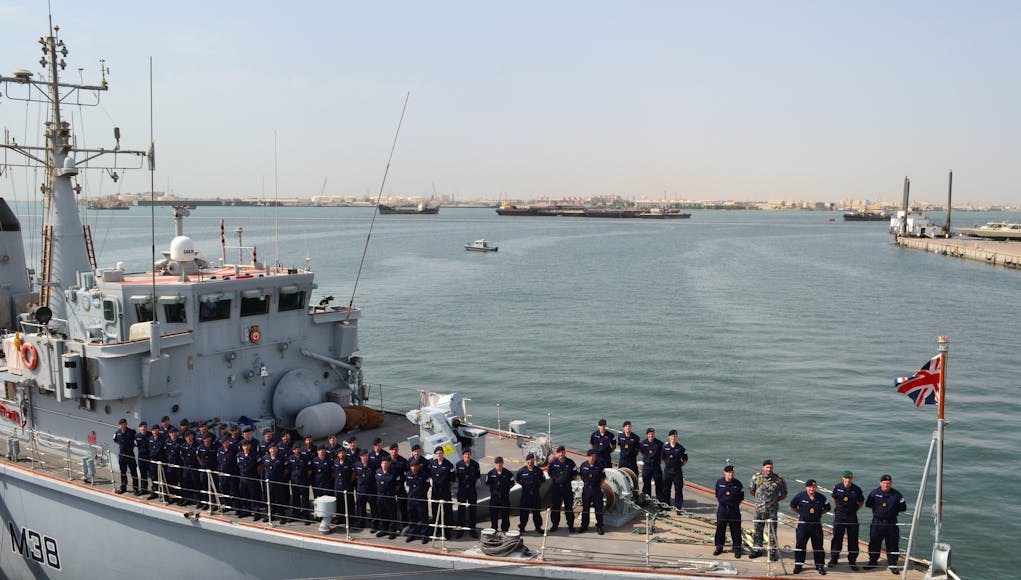
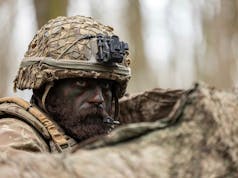
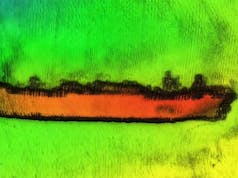
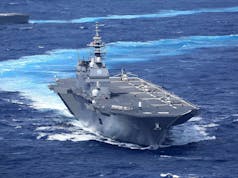
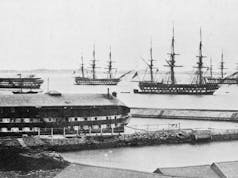

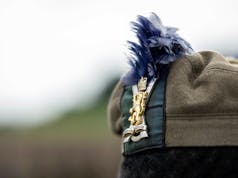
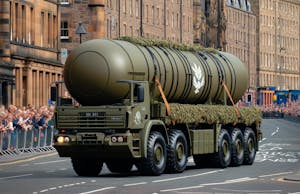









Great article.
Does not mention the fact that Oman also hosts 3 sites for GCHQ, a fact leaked courtesy of that traitor Edward Snowden.
These and the RN facility are vital facilities and the Omani UK relationship is another example of UK soft power mentioned in an earlier thread here where the UKs military, diplomatic and intelligence links give HMG leverage and influence in a region with traditional strong UK ties.
*an historic
Oman is a lovely country, quite dramatic in geography, with friendly people and a far more balanced and humane political establishment than the very conservative and frankly bling cultures surrounding it.
Moreover they’re investing heavily in tourism and are building some dazzling resorts: with the obvious family friendly twist your expect of a Middle Easter nation. Something of an oasis in a sea of crazy.
Thanks for another strong article.
This base is located in an area where the primary threats to warships (and other ships) are from the air and from low-end hostile surface vessels rather than submarines. The Royal Navy should operate Type 31 frigates and OPVs from the base, thereby freeing-up our ASW assets, particularly Type 26 frigates, to remain in home waters where submarines pose the greatest threat.
Time to consider a renewed RAF presence on Masirah island then?
The RAF already has a permanent base in Oman.
Better late than never Mr. Reply.
This looks like it was written by the Babcock press office to put a positive spin on a bad location for the Duqum port “Drydock capability that enables the accommodation of submarines and the Queen Elizabeth class aircraft carriers have been confirmed; in contrast with the naval base in Bahrain, HMS Juffair, where the aircraft carriers have to anchor relatively far from the port facilities due to its shallowness.” Sorry but that is spun to be inaccurate. The QE will berth where the USN nuclear carriers and subs berth alongside in Mina Khalifa Port which is approx 3 miles from… Read more »
No mention of “cracker battery” being deployed to Dhofar in the 1970s?
History can be so unkind to the ordinary squadie.
Visited Salalah many time on LUSTY, the LPH conversion/re-role was conducted there post 911. Would make sense to formalise an agreement of some description.
Have to say it makes an interesting comparison with our ‘allies’ in europe. With some honourable exceptions there are few EU states we could count on like Oman.
Nice to see. A long time overdue. Can only be for the good. One critism. Seen pics of commisioning ceremony. Royal Naval Guard. Dressing is poor, sizing is absolutely appalling. Seen better at New Entry part one training. Get your act together Chief GI. REMEMBER WHALE ISLAND? BILLY Graham ex RN CPO
[…] direction of British policy. The opening of a naval base in Bahrain, along with a facility in the Omani port of Duqm, will allow the new aircraft carriers to dock and repair. Given that India signed an agreement […]